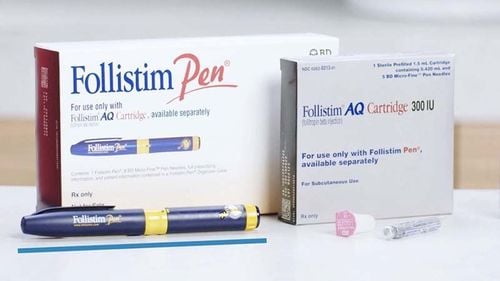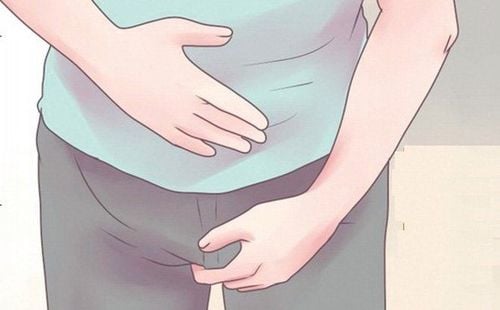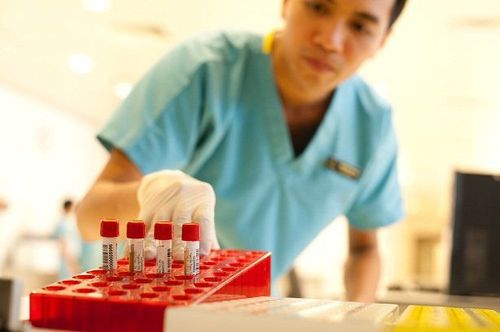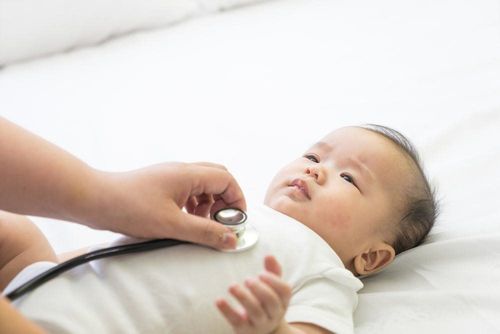This is an automatically translated article.
The article is expertly consulted by MSc Vo Thien Ngon - Urologist, Vinmec Danang International General Hospital.Testicular failure is also known as testicular failure or hypogonadism in men. The disease is characterized by a decrease in the hormone testosterone. Testosterone is produced mainly in the testes and to a lesser extent in the adrenal glands. This is a male sex hormone necessary for sexual performance and reproduction.
1. Can I have children with testicular failure?
Testicular failure is one of the leading causes of male infertility. Because the testicles are the place to produce sperm, when the testicles fail, it means that the quantity and quality of sperm will decrease, which can even lead to weak or dead sperm, so the possibility of infertility is very high. do not initiate treatment in a timely manner.2. What is the role of testes in reproduction?
Male reproductive physiology depends on the interplay between the nervous and endocrine systems. It is the rhythmic operation of the hypothalamic-pituitary-testicular axis system, which governs sexual development and determines the time of puberty as well as ensures male reproductive function.Genetic disorders, physical damage or endocrine disorders of this axis will cause male reproductive pathology. The testicles are responsible for producing sperm and the hormones that govern a man's sex life.
Both of these functions are under the supervision and regulation of the hypothalamic-pituitary complex. Testosterone is a hormone secreted by the testicles, in sexual life it plays a role in starting and maintaining male sexual function, increasing sexual interest and erection quality of the penis. On the reproductive system, testosterone stimulates the differentiation of the reproductive organs during fetal development and the prostate gland during puberty.
During the development of testosterone helps maintain the functioning of these organs and participates in spermatogenesis. When the testicles do not produce enough testosterone and the sperm count is abnormal, it is called testicular failure syndrome.
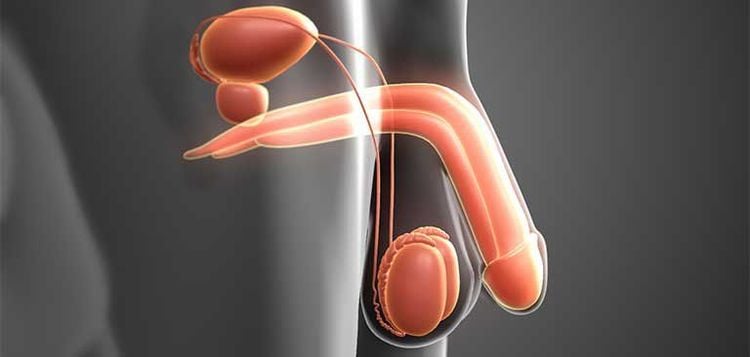
3. So what is the cause of testicular failure?
The cause may be due to a disorder in one of the components of the hypothalamic-pituitary-testicular axis. This is a congenital or acquired disease that causes the Leydig cells of the testes to degenerate, not producing or producing less of the hormone testosterone in the body.Not only affects fertility and sex problems, testosterone also affects other organs such as increasing muscle mass, reducing body fat, reducing the risk of osteoporosis, improving mental state, reduce anxiety and agitation. Therefore, testicular failure also affects many other organs in the body.
Causes of testicular failure such as trauma, testicular torsion causing testicular rupture or fibrosis, chronic inflammation causing testicular atrophy. Congenital diseases such as undescended testicles, testicular cancer, undescended testicles, and radiation therapy all change the temperature of the testicles and reduce the number and volume of the seminiferous tubules. produce sperm and testosterone.
People who abuse exogenous testosterone suppress the testes' natural production of testosterone. Testicular failure is also in the context of a number of other diseases with hypopituitarism, posterior fossa tumor, hypothyroidism or genetic diseases such as Turner syndrome, Klinefelter syndrome.
Because testicles have endocrine (testosterone) and exocrine (sperm production) functions, symptoms of testicular failure include decreased libido, erectile dysfunction, and small testicles. , infertility,... Because testosterone affects many other organs in the body, you can also see a decrease in muscle mass, fragile bones, loss of concentration, memory loss...
4. Is testicular failure curable?

The testicle is physically damaged, so it atrophy (may be caused by inflammation, trauma, ectopic, ...) cannot guarantee its function even though the stimulating hormone from the pituitary gland is still fully secreted.
Clinically, decreased libido may be observed, no spermatogenesis, but secondary sexual characteristics are less affected. Because of the damage to the testicles, the prognosis for these patients is often difficult.
If blood testosterone decreases and LH and FSH decrease, then testicular failure may be caused by hypothalamus and pituitary gland. Damage from the hypothalamus - pituitary gland, so the amount of LH and FSH is lacking, not enough to stimulate the testes to produce testosterone and produce sperm. These cases should be treated with gonadotropic hormones (exogenous LH, FSH) in combination with androgens.
The intake of these hormones can last from a young age until they have children. These are also growth hormones of the body, so its adjustment needs to be examined and monitored by experienced specialists. Testosterone supplementation in patients with decreased libido or infertility in which gonadotropic hormones are relatively normal and testicular lesions are reversible such as normal-sized seminiferous tubules. , no fibrosis or only partial fibrosis.
Treatment of testicular failure should be carried out at specialized medical facilities, avoiding self-medication indiscriminately causing serious complications for the patient.
Please dial HOTLINE for more information or register for an appointment HERE. Download MyVinmec app to make appointments faster and to manage your bookings easily.





